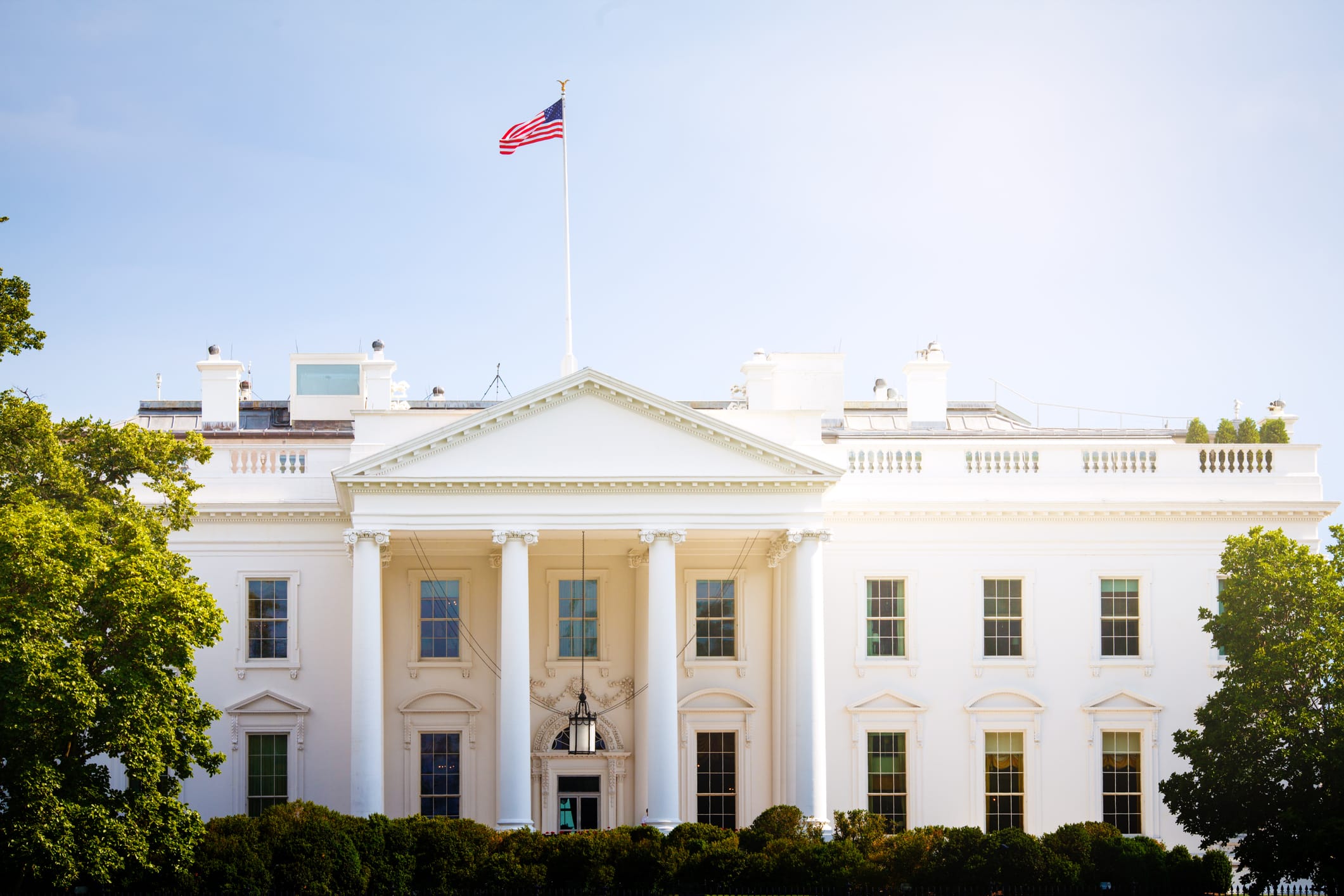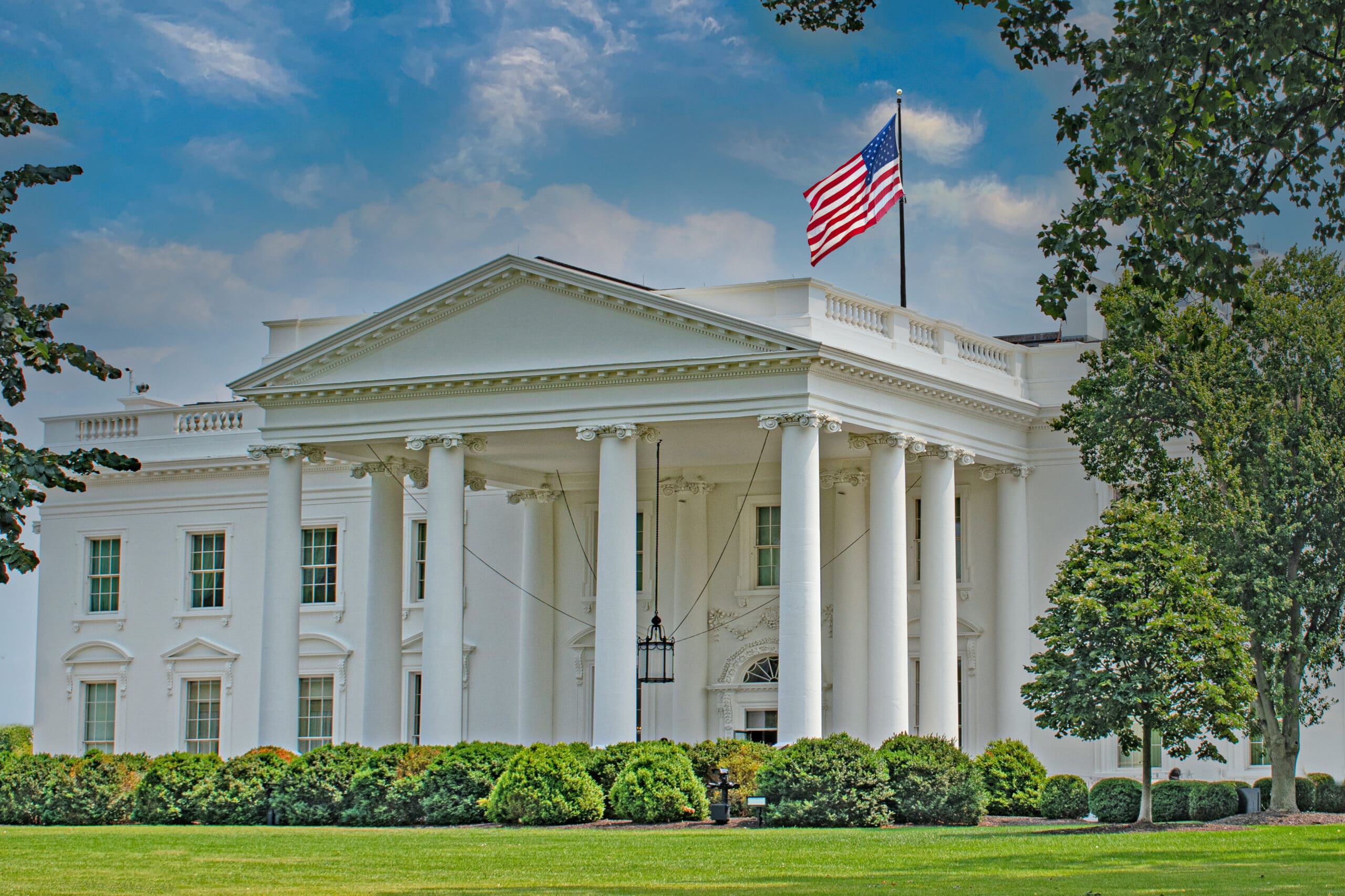Majority of Voters Think AI Presents a Threat to the Workforce
BOSTON – The June 2023 Emerson College Polling national survey of voters finds President Joe Biden with a 41% job approval, and 51% disapproval. His approval is consistent with his approval in the April 2023 national poll, while his disapproval increased two percentage points, from 49% to 51%.
In the 2024 Democratic Primary, Biden holds 73% of the vote, while 15% plan to support Robert Kennedy Jr., and 3% Marianne Williamson. Ten percent plan to vote for someone else.
In the 2024 Republican Primary, former President Trump maintains a majority of Republican voters’ support with 59%, followed by Florida Governor Ron DeSantis with 21%, and former Vice President Mike Pence with 6%. No other candidate reaches 5%.
Since April, Trump’s support in the Republican primary has decreased by three percentage points, while DeSantis’ support has increased by five points.
“In the past year, the Republican primary has remained statistically unchanged,” Kimball noted. “However, DeSantis has made inroads with women voters over the last few months; Trump led DeSantis among women voters 58% to 17% in April, but now leads 53% to 26% in June, a 14-point improvement for DeSantis.”
Looking at potential 2024 general election matchups, Biden and Trump remain in a statistical tie, Biden with 44% and Trump with 43%. Nine percent would vote for someone else, and 4% are undecided. In a matchup between Biden and DeSantis, 43% would support Biden and 37% DeSantis; 14% someone else and 7% are undecided.
If third party candidate Cornel West was to appear on the ballot with Trump and Biden, Biden’s support decreases to 40%, Trump to 41%, and West holds 6%. Seven percent would vote for someone else and the share of undecided voters increases to 6%.
“When West is added to the ballot test, he pulls 15% of support from Black voters, and 13% from voters under 35, two key voting blocs for President Biden,” Kimball noted.
Voters were asked if they think news organizations are giving too much coverage, too little coverage, or the right amount of coverage to the indictments of Donald Trump. A plurality (44%) think there is too much coverage, 37% think there is the right amount of coverage, and 20% think there is too little coverage of his indictments.
“Fifty-seven percent of Republican voters and 49% of independent voters think there is too much media coverage of Trump’s indictments, whereas 26% of Democrats think there is too much coverage,” Kimball said. “Forty-eight percent of Democrats think it is about the right amount of coverage.”
Half of voters (50%) say Trump’s federal indictment in Florida makes them less likely to vote for him in 2024, while 30% say it makes them more likely to support the former president; 20% are unsure. Regarding his New York state indictment, 49% are less likely to support Trump; however, a third (33%) are more likely to support Trump, and 18% are unsure.
“The New York indictment might be more consequential to Trump’s primary support compared to the indictment in Florida,” Kimball noted. “Of those who say they are less likely to support Trump because of the New York indictment, 16% would still vote for Trump in the primary, of those who say they are less likely to support him because of the federal indictment, 28% still plan to vote for Trump in the Republican primary.”
The economy remains the most important issue for a 41% plurality of voters, followed by ‘threats to democracy’ (14%), healthcare (11%), immigration (9%), crime (8%), and abortion access (5%).
Seventy-six percent of voters think artificial intelligence, or AI, presents a major (38%) or moderate (38%) threat to jobs in the United States, 18% think it poses a minor threat, and 7% find it to present no threat at all.
“As voters’ age increases, their view of AI as a major threat to jobs increases: 27% of 18-34 year olds view AI as a major threat, compared to 31% of 35-49 year olds, 43% of 50-64 year olds, and 48% of those over 65,” Kimball said.
For those who say immigration is the most important issue facing the US, 60% think AI is a major threat to US jobs. Kimball suggests “this could indicate concerns about US jobs being related to both technology and immigration for these voters.”
Methodology
The Emerson College Polling national survey was conducted June 19-20, 2023. The sample of registered voters, n=1,015, has a credibility interval, similar to a poll’s margin of error (MOE), of +/- 3 percentage points. The data sets were weighted by gender, education, race, age, party affiliation, and region based on 2024 registration modeling. Turnout modeling is based on US Census parameters, and US voter registration data.
It is important to remember that subsets based on demographics, such as gender, age, education, and race/ethnicity, carry with them higher credibility intervals, as the sample size is reduced. Survey results should be understood within the poll’s range of scores, and understand with a confidence interval of 95% a poll will fall outside the range of scores 1 in 20 times.
Data was collected by contacting an Interactive Voice Response (IVR) system of landlines, an online panel of voters, and cellphones via SMS-to-web, and a consumer list of emails.
All questions asked in this survey with exact wording, along with full results and cross tabulations can be found here. This survey was funded by Emerson College.







